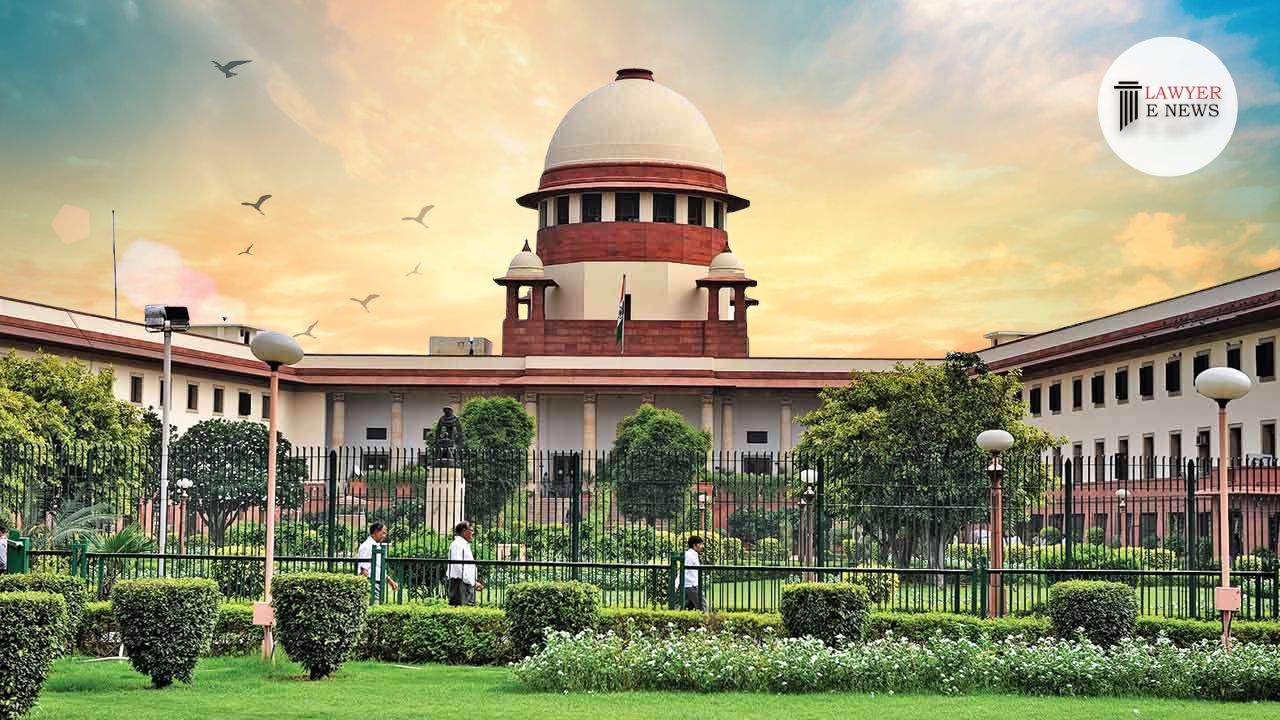-
by sayum
14 February 2026 2:22 PM



High Court's decision on the dismissal of impleadment application reversed, reiterates the doctrine of lis pendens does not nullify the sale deed.
In a significant ruling, the Supreme Court of India has allowed the impleadment of a transferee pendente lite in a civil suit despite the transferee's knowledge of the ongoing litigation. The bench, comprising Justices Vikram Nath and Satish Chandra Sharma, overturned the High Court's decision which had denied the impleadment based on the doctrine of lis pendens under Section 52 of the Transfer of Property Act, 1882.
The appeal stemmed from a civil suit involving the sale of farmland in Hinduan City, Rajasthan. The appellant, Yogesh Goyanka, had purchased the land along with other proforma respondents from Respondent No. 21, who had acquired it from Respondents 18-20 based on release deeds executed by Respondents 1-17. The original plaintiffs (Respondents 1-17) sought a declaration that the release deeds and subsequent sale deed were null and void. Despite knowing about the ongoing litigation, Goyanka purchased the land and later filed for impleadment in the suit, which was dismissed by the Additional District Judge and subsequently by the High Court.
The Supreme Court extensively discussed the principles of the doctrine of lis pendens and the rights of transferees pendente lite.
The court clarified that the doctrine of lis pendens does not automatically render all transfers void but makes them subject to the outcome of the litigation. "The mere fact that the registered sale deed was executed during the pendency of the underlying suit does not automatically render it null and void," stated the court.
The bench noted that while transferees pendente lite cannot seek impleadment as a matter of right, the law allows their impleadment to protect their interests. The court cited previous judgments to highlight that such impleadment is discretionary and can be permitted to prevent possible collusion between parties or when the transferor may
The court criticized the High Court's interpretation of Section 52 of the Transfer of Property Act, stating that it incorrectly nullified the sale deed. The bench emphasized the necessity to allow the appellant's impleadment to protect his interests, especially given the possibility of collusion between the plaintiffs and the original defendants, who were relatives.
Justice Sharma remarked, "Permitting the impleadment of a transferee pendente lite is, in each case, a discretionary exercise undertaken to enable a purchaser with a legally enforceable right to protect their interests, especially when the transferor fails to defend the suit or where there is a possibility of collusion."
Justice Sharma noted, "In the particular facts and circumstances of this case, Mr. Sundaram has been able to satisfy this Court on the possibility of collusion between the Respondents. It is a fact that the Plaintiffs and Defendants are relatives."
The Supreme Court's decision reinforces the nuanced application of the doctrine of lis pendens, ensuring that transferees pendente lite can protect their interests under appropriate circumstances. By allowing the appellant's impleadment, the court has underscored the importance of fair trial practices and the prevention of potential collusion in property disputes. This judgment is expected to influence future cases involving similar legal issues, balancing the rights of subsequent purchasers with the principles of ongoing litigation.
Date of Decision: July 10, 2024
Yogesh Goyanka vs. Govind & Ors.
